Description
Amenorrhea is the disappearance of menses in women who are at the reproductive stage. But it is common in prepubertal, postmenopausal, and pregnant woman. It also ceases in the women when they are breastfeeding. Around the age of 50, mensuration stops permanently. However, it is a health problem rather than the disease.
Types of amenorrhoea
There are two types: Primary and Secondary amenorrhea.
Primary amenorrhea
Mensuration that does not occur at the puberty stage is referred as primary amenorrhea. Primary amenorrhea can be diagnosed if a patient has normal secondary sexual characteristics, but no menarche by 16 years of age. If a patient has no secondary sexual characteristics and no menarche, primary amenorrhea can be diagnosed as early as 14 years of age.
Secondary amenorrhea
The cessation of menses for 3 months at any time after the menarche has occurred is referred to as secondary amenorrhea. This is normal during pregnancy, lactation, and menopausal age. Sometimes secondary amenorrhea may also occur for 6 months in women who already have normal periods. Secondary amenorrhea is the more common than the primary amenorrhea. Amenorrhea that occurs more than 9 months is called as oligomenorrhea.
Pathophysiology of amenorrhea
In general, the hypothalamus produces a series of a regulating hormone called gonadotropin-releasing hormone (GnRH). It stimulates the pituitary gland to release gonadotropins (follicle-stimulating hormone [FSH] and luteinizing hormone into the bloodstream. Under the stimulation of gonadotropins, ovaries produce androgens, estrogens, and progesterone and these perform different functions in the reproductive system as follows.
- FSH: It stimulates the tissues of the reproductive organ which are particularly around the developing oocytes.
- Oestrogen induces the endometrial lining and causes proliferation.
- Leutinising hormone releases during the menstrual cycle to promote the maturation and release of the oocytes. Then to form the corpus luteum, which produces the hormone progesterone.
- It changes the lining of the endometrium into a secretory structure and strengthens it for the implantation of the egg.
- If the pregnancy does not take place, then the production of estrogen and progesterone decreases and thus the endometrium disrupted and shed during menses.
Epidemiology
- No evidence indicates that the prevalence of amenorrhea varies according to national origin or ethnic group. However, local environmental factors related to nutrition and the prevalence of chronic disease undoubtedly have an effect.
- For instance, the age of the first menses varies by geographic location, as demonstrated by a World Health Organization study comparing 11 countries, which reported a median age of menarche of 13-16 years across centers.
Causes of amenorrhea
- Natural causes: It can occur during pregnancy, lactation, and menopause stage of women.
- Chromosomal or genetic abnormalities affect the function of ovaries and menstrual cycle. is Example: Turner syndrome
- Problems with the hypothalamus or pituitary gland: It is an organ that regulates the releasing of gonadotropin-releasing hormone (GnRH), the hormone that starts the menstrual cycle. Pituitary tumors can also be a cause of amenorrhea.
- Physical problems: Lack of reproductive organs and blockage of passages in the reproductive organs.
- Gynecological conditions: Polycystic ovary syndrome (PCOS) and Fragile X-associated primary ovarian insufficiency (FXPOI),
- Thyroid problems: Problem in the regulation of hormones by the thyroid gland. Hyperthyroidism and hypothyroidism cause irregularities in the menstrual cycle.
- A family history of amenorrhea or early menopause
- Some birth controls, such as pills, injections, or intrauterine devices. These can affect your menstrual cycle during and after use.
- Medications: Antipsychotics, cancer chemotherapy, antidepressants, blood pressure drugs allergy medications.
Risk factors
- Athletic training
- Family history
- Eating disorders
- Women undertake high-volume/high-intensity exercise programs
- Low fat, low carbohydrate diets
- Use of anabolic steroids by female athletes is often responsible for a range of menstrual irregularities
Symptoms
The symptom of amenorrhea is the absence of menstrual cycle. You might experience symptoms other than the absence of menstrual cycle such as follows:
- Milky discharge from breast who is not the pregnant (Galactorrhea) and changes in breast size
- Reduced peripheral vision
- Weight gain or weight loss may happen
- Women may have psychological abnormalities with excessive anxiety
- Vaginal dryness and pelvic pain
- Increased hair growth in male pattern due to the androgen production
- Acne and facial hair growth
- Hair loss
Complications of amenorrhea
Some of the complications may arise such as:
- Infertility ( ovulation doesn’t take place so you will not get pregnant)
- Reduction in bone density cause weakness of bones (osteopenia or osteoporosis)
Diagnosis and test
First, your doctor may do the physical examination by examining the breast and genital area to see the normal changes in puberty.
Some of the following tests are carried out to determine the cause amenorrhea
- Ultrasonography can be performed in pelvis area to determine the abnormalities in the genital tract or to check for polycystic ovary
- MRI or CT scan of the head can be performed, to find out the pituitary and hypothalamic causes of amenorrhea
- To determine the level of hormones secreted by the pituitary gland (FSH, LH, TSH, and prolactin) and the ovaries
The above tests are not indecisive to determine amenorrhea, the additional tests can be carried out such as:
- Determination of prolactin level
- Thyroid function tests
- Uterus examination can be carried out by doing X-ray for hysterosalpingogram and saline infusion sonography
Treatment and medications
The treatment depends on the cause of the amenorrhea as well as the health status of the person. The primary amenorrhea is the late puberty so it doesn’t manage or treated. This condition will go off later. Some of the causes can be managed by drug therapies such as follows:
- Dopamine agonist such as bromocriptine (Parlodel) or pergolide (Permax) is effective for treating hyperprolactinemia. It restores the normal endocrine function and ovulation
- Metformin (Glucophage) to induce ovulation in women’s with polycystic ovary syndrome
- In some cases, oral contraceptives may be prescribed to restore the menstrual cycle and to provide estrogen replacement to women with amenorrhea who do not wish to become pregnant. Before administering oral contraceptives, withdrawal bleeding is induced with an injection of progesterone or oral administration of 5-10 mg of medroxyprogesterone (Provera) for 10 days
- Hormone replacement therapy can be used for the women who have low level of estrogen and progesterone
Some of the surgery options are preferred by the physician when in extreme cases such as
- Surgery may require for some pituitary and hypothalamic tumor in some cases by radiotherapy
- Women with intrauterine adhesions require dissolution of the scar tissue.
- Surgical procedures required for other genital tract abnormalities depend on the specific clinical situation.
Prevention of amenorrhea
A woman can prevent the amenorrhea by following programs
- Sensible exercise programs
- Maintaining body weight
- Proper diet maintenance
The conditions when amenorrhea occurs due to genetic or during inborn cannot be prevented.
 Diseases Treatments Dictionary This is complete solution to read all diseases treatments Which covers Prevention, Causes, Symptoms, Medical Terms, Drugs, Prescription, Natural Remedies with cures and Treatments. Most of the common diseases were listed in names, split with categories.
Diseases Treatments Dictionary This is complete solution to read all diseases treatments Which covers Prevention, Causes, Symptoms, Medical Terms, Drugs, Prescription, Natural Remedies with cures and Treatments. Most of the common diseases were listed in names, split with categories.

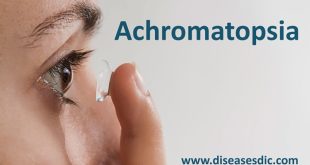
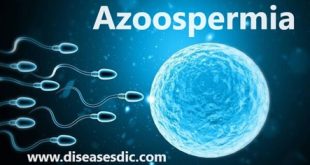
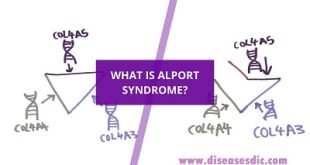
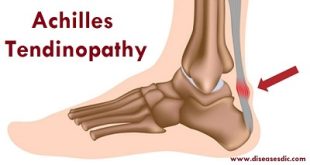
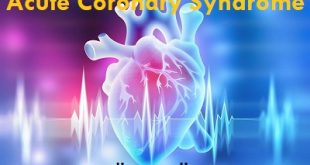


please can PID cause amenorrhea?
no. only Polycystic ovary syndrome (PCOS) and Fragile X-associated primary ovarian insufficiency can cause PID.
what is the different between lactational amenorhea and amenorhea
Amenorrhea is due to defect in the hormonal regulations and reproductive organs. In Lactational amenorrhea, breastfeeding delays the resumption of normal ovarian cycles by disrupting the pattern of pulsatile release of Gonadotropin-releasing hormone (GnRH) from the hypothalamus and hence Luteinizing hormone (LH) from the pituitary.
my sister is experiencing a serious pains inside her genital organs a lot of test had been carried out in more that 4 teaching hospitals and private hospitals for over five years now to all avail. secondly, she has ceased to mensurate over ten years now before she started experiencing the pains. what could be the cause and its possible medical remedies.reply me via ndudirimachonwa@gmail. com
Please consult a gynecologist.
I have been trying to conceive for 8months now. I have visited the gynecologist and i was giving folic acid to be taken for 30 days but is not working.
I have a 27days interval in between my cycles and is regular
Consult with good physician and find the reason behind your problem.
pls can antiviral drugs cause amernohea ?
it may cause menstrual pain but not amenorrhea.
Noted,if a woman reached age 50; as menopause age pls why can’t recommend some drugs of no side effects for all women of these categories for them to be using OR Natural foods &fruits for remedies since this menopausal problems is an of all ladies even some don’t sex again for peculiar reasons. pls positive result awaited. Cheers.
As it is a natural progress of women development stage, it can’t be cured rather it can be mitigated by certain drugs to reduce the pain associated at that age.
I no longer see monthly period any more please what can I do
please consult gynecologist
Please my girl friend is feeling pain in her belly early two days before having her period and feeling pain pain in her private area when she urine.please what would be cause for it. Thank you
Please consult a gynecologist.
its wonderful lesson ,i am pass through it and gain something new. keep it up!!!!!!
Environment also can cause secondary amenorrhea. in an experiment which done between the hostel girl students and day girl students , This research was conducted per annualy ,the study showed that there are high numbers of girl students who stayed at hostel and developed secondary amenorrhea compared to day students . generally this findings conclude that Change in environment can lead to secondary amenorrhea.
two years ago, I went to a hospital to complain that I do menstruate twice in a month and I was diagnosed with secondary amenorrhea. I was give a drugs to use. afterwards everything went well…. so I later went to general hospital this year because my menstruation has not been coming regular, it has a month interval…. so I was asked to go for FSH which I did and the result shows that am having premature ovarian failure…. what can I do because am in need of a baby…..
please consult a good gynecologist to get rid of this problem.
You all are very wonderful, God bless u all so much for given us the listeners time to complain and u reply.
Thanks.
i took d 3month contraceptic injection and have not see my menstruation after the 3month. please can i take the provera.
Please consult a doctor before using provera.
does ovarian cyst cause amenorrhea?
Amenorrhea and ovarian cysts can both be symptoms of a problem, such as a hormonal problem. So they may go together but not really be causing each other, if that makes sense, although ovarian cysts can sometimes cause amenorrhea.
hv nt seen my periods 4 4months now& am not pregnant,wht could be the problem??
please consult a doctor.
please what is the cause of my period to cease for like two to three months, and I have never conceived! pls I need solutions because have gone true so many tests and medications,such as drugs and injection. please help me, what can I take to make things right?
Please consult a good doctor.
my student complained that she usually have her menses twice in a month. Is it normal?
it is abnormal due to endocrine system disorders. please consult it with a doctor.
Please someone who is not pregnant and didn’t do any abortion. But she has also gone for test to know if it is infection. After which she was placed on medication. After the medication. The Brest is still bringing out water but not as much as before. What will be recommended in this issue?
Please consult a doctor and get diagnosed.
how can I managed my weight and tpye of exercise if am having amennorrhia
Please consult a doctor.
am suffering from nipple discharge white nipples discharge like water for abt 6yrs, I went doc, I was Diagnosed with prolactin problem.
so later give me medication, for over two months now, but the
problem is still exists.
Pls help me doc what else can I do.
still looking for a baby.
Please consult a doctor. It may be due to hormonal imbalance.
I am experiencing this kind of disease for the past 6years still
I use provera to stop it any time it comes
will this affect my body or cause any harm to my body
If you don’t ovulate and have menstrual periods, you can’t become pregnant. Osteoporosis. If your amenorrhea is caused by low estrogen levels, you may also be at risk of osteoporosis — a weakening of your bones.
Please consult a doctor to get rid of this problem.
can failed or complete abortion cause amenorrhea?
Yes it causes amenorrhea after an abortion due to cesarean section, or certain abortion procedures
Certain abortion procedures can scar the uterus and thus causes amenorrhea.
for more than 8 months now my friend hasn’t seen her period and she’s is not pregnant as well what would be done about such situation?
please consult a doctor.
can contraceptive cause amenorrhea
Hormonal birth control can also contribute to secondary amenorrhea. Depo-Provera, a hormonal birth control shot, and hormonal birth control pills, may cause you to miss menstrual periods.
does that mean the provera will be inject everyday, for ten days?
For amenorrhea, Provera (medroxyprogesterone) is usually taken orally, not as a daily injection. Your healthcare provider will prescribe a specific dosage and duration, often ranging from 5 to 10 days, to induce withdrawal bleeding. Always follow your provider’s instructions meticulously and reach out to them if you have any concerns or questions about your prescribed treatment.
I’m in my early 50. Had children before but need to have one more atleast. But I’ve been experiencing Amenorrhea for sometime now. I had a test nd it says high prolactin, don’t know what to do.
please what causes twice menstruation in a month and what is the treatment
Twice monthly menstruation, known as irregular or frequent menstrual cycles, can be caused by various factors, including hormonal imbalances, stress, diet, or certain medical conditions. Treatment depends on the underlying cause and may involve hormonal therapies, lifestyle adjustments, or addressing specific health issues. It’s advisable to consult with a healthcare professional for a proper diagnosis and personalized treatment plan based on individual circumstances.